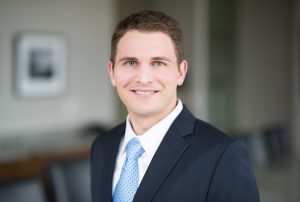Before Moore, Reyna, and Wallach. Appeal from the Southern District of California.
Summary: District court improperly held that claims were directed to a natural law where the claims recited a method of treatment requiring a specific and allegedly unconventional dosage of the naturally occurring ingredient.
Natural Alternatives asserted several dietary supplement patents generally related to using beta-alanine, a naturally occurring product, to “increas[e] the anaerobic working capacity of muscle and other tissues.” Creative Compounds moved for judgment on the pleadings alleging ineligibility under 35 U.S.C. § 101. The district court granted Creative’s motion and held that even under the patentee’s proposed claim constructions, the claims were directed to a natural law and thus, were ineligible for patenting.
The Federal Circuit reversed and remanded stating that, under the patentee’s proposed claim construction, the claims at issue “are treatment claims and as such they are patent eligible.” The Federal Circuit found that although beta-alanine is a natural product, the claims were not directed to beta-alanine, but instead, were directed to “specific treatment formulations that incorporate natural products,” where those natural products “have different characteristics and can be used in a manner that beta-alanine, as it appears in nature, cannot.”
The court cited Vanda Pharmaceuticals Inc. v. West-Ward Pharmaceuticals International Ltd., 887 F.3d 1117, 1134–36 (Fed. Cir. 2018) for that case’s discussion of “treatment claims” under the Mayo/Alice two-step framework. Vanda contrasted patent-eligible treatment claims from the diagnostic claims found ineligible in Mayo. Applying Vanda, the court found that Natural Alternatives’ claims were “treatment claims” because the claims as construed “require that an infringer actually administer the dosage form claimed in the manner claimed.” Thus, the court found that the claims were patent-eligible at Mayo/Alice step one.
The court also stated that “at step two, factual impediments exist” to invalidating the claims at the pleading stage. Under Natural Alternatives’ constructions, the claims allegedly required a dietary supplement with “a dose well in excess of the normal levels of beta-alanine.” The court found no basis to conclude that this dietary supplement limitation was well-understood, routine, and conventional at Mayo/Alice step two.
Judge Reyna, writing separately, disagreed with the claim construction that the majority used to find the claims patent-eligible, but concurred in the majority’s decision to remand for further proceedings. Believing that the district court afforded too much deference to the patentee’s proposed claim construction, Judge Reyna questioned in his opinion whether “a Rule 12(c) motion based on § 101 should be decided before claim construction,” and suggested that district courts should be asked to independently construe claims before deciding § 101 issues.
